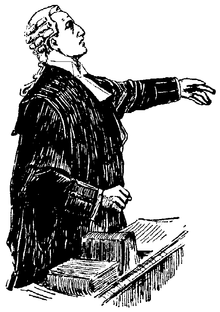In most cases, if a mortgagor (the landlord) has not sought the consent of his mortgagee (the bank) to put a tenant in the property, the tenancy will not be binding against the bank when it seeks repossession for arrears.
A private members' bill was supported by the Government yesterday which whilst not actually making 'unauthorised' tenancies binding on mortgagees (that would be opposed by the banks because it would weaken their security - remember most such banks and their security are owned by HMG) - the bill does allow the Court to give tenants a 2 month breathing space to allow them to move out before possession has to be given back to the bank. The bill has passed second reading (rare for a private members' bill) and is now sent to Committee. With Government support it may pass.
See here.
Courts and Tribunals Bill (25 February 2026)
-
House of Commons - 25 February 2026 - the government introduced the Courts
and Tribunals Bill.
The Bill follows on from the Reports by retired j...
13 hours ago

I doubt that I am alone in distrusting the government’s constitutional change agenda. Politicians are not so altruistic as to do things without keeping an eye on the impact it will have on themselves.
ReplyDeleteConsider the Alternative Vote proposal. There are good reasons to suspect that it would deliver greater benefit to Labour than to other parties. See the Report of the Independent Commission on the Voting System – 1998, Cm 4090.
http://www.archive.official-documents.co.uk/document/cm40/4090/chap-5.htm
Their study indicated that the 1997 General Election would have delivered Labour an even greater majority. AV is therefore a long from being a proportional system and could well make matters even less proportional than they are under first past the post. Little wonder then that Labour is suggesting it.
Just what is the convincing case for a written constitution? What value does it add and will it limit the powers of government? The need for one seems to be the simplistic idea that most other countries have one. IF one is ever to be adopted then it must have clear endorsement of the British people.
What would it include? It would have to define who is Head of State and what the rights and powers of the Head of State actually are. It would go on to set out the arrangements for an executive; a legislature and a judiciary. It would need to deal with the Armed Forces. Where do you go from there? Would it tie us in to membership of the EU? Would it grant the British people certain rights which could not be altered? If so, what would those rights be? Would it impose duties (responsibilities) on the British people? If so, what would they be? Would it abolish or reform the prerogative powers which can enable a Prime Minister to act like a medieval monarch? Would it alter the functions of the Attorney-General which appear to many of us to be hopelessly compromised in recent years?
It would have to do all those things without becoming immensely detailed and lengthy. The detail would then, no doubt, be fleshed out in many other Acts. What would be the status of those Acts if, as might be likely, they were to go against the constitution itself?
In a speech in 2004, Lord Bingham argued that all provisions of a constitution should be justiciable and “not resort to the expression of hopes and aspirations.” Bingham also recognised the need for some form of entrenchment but little more than a requirement for an enhanced majority of both Houses of Parliament or perhaps a referendum. [He did not mention the difficulties of framing referendum questions etc]. He was against the idea of a Constitutional Court which he saw as “alien to our tradition.”
Thus, we seem to finish up with some document which has to be pretty broad brush so that the detail can be filled in by either other Acts or by judicial decision or by political action. Back therefore to the question: just what benefits flow from that and is there even a danger that the freedom of the individual citizen might be limited by such a document?
The USA has a written constitution. It hardly stopped the President getting the Patriot Act enacted or setting up Guantanamo Bay so as to put suspects beyond the reach of the normal courts. A written document is not therefore a panacea and we should be very wary of any salesman who is seeking to persuade us to buy one.